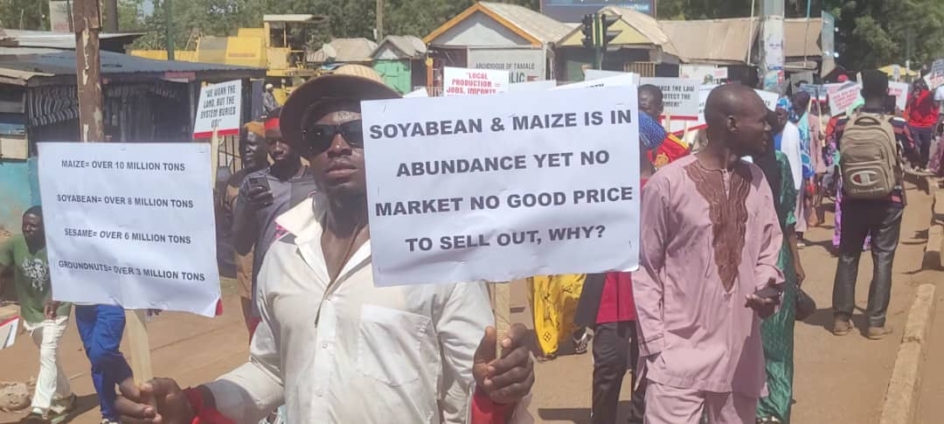Unsold rice and cheap maize threaten farmer viability
Over 1m tonnes of Ghanaian paddy rice remain unsold while maize prices crash in Sissala, revealing storage, market-access and policy failures. Farmers face income shocks even as the country still imports grain, underscoring urgent need for grain-system reform.

Reports that over one million metric tonnes of paddy rice remain unsold in northern Ghana, alongside a sharp crash in maize prices hitting Sissala farmers, highlight a paradox at the heart of the country’s food economy: producers are facing income collapse in a country that still imports significant volumes of grain. The problem is not output; it is coordination—storage, market access, finance, and trade policy are failing to translate bumper harvests into stable incomes and efficient national supply.
The mechanism is classic commodity-cycle mismatch. On the rice side, expanded cultivation, encouraged by food-security narratives and input support, has created large surpluses of paddy that cannot find buyers at remunerative prices. Limited local milling capacity, logistical bottlenecks, and competition from imported rice mean that a sizable portion of domestic harvest sits in warehouses or open storage, degrading in quality and tying up farmers’ working capital. In Sissala and other maize-producing areas, a similarly strong harvest has collided with insufficient storage and weak local demand, pushing farm-gate prices sharply lower.
In both markets, farmers are price takers with little bargaining power. They lack access to affordable, quality storage and structured trading systems that would allow them to hold grain and arbitrage seasonal price swings. Banks often perceive grain inventories as risky collateral, and warehouse receipt systems remain thin. Meanwhile, policy signals are mixed: on the one hand, government encourages import substitution; on the other, import regimes and consumer-preference patterns continue to favour foreign rice, undercutting domestic producers just when supply is high.
The macro consequences are significant. When farmers are forced to liquidate harvest at distressed prices, they reduce investment in the next season—cutting back on fertiliser, quality seed and hired labour. This undermines yields and can push households toward default on input-credit or informal loans. Over time, this erodes rural incomes, weakens local financial institutions exposed to agriculture, and undermines national food-security narratives. Simultaneously, Ghana continues to spend scarce foreign exchange on grain imports while domestic stocks sit idle.
A more functional grain system would integrate storage, finance, and trade. Scaled warehouse receipt schemes, backed by clear regulation and credible collateral management, would allow farmers and aggregators to borrow against stored grain rather than sell into glutted markets. Targeted public procurement—linked to school feeding, emergency reserves, and social programmes—could absorb part of the surplus at transparent, rule-based reference prices instead of ad hoc interventions. Trade policy adjustments could temporarily discourage low-priced imports when local stocks are high, while still respecting consumer welfare and regional commitments.
For the private sector, the crisis also signals opportunity. Investment in modern milling, drying, storage, and logistics can turn paddy stocks into market-ready rice and position Ghana as a regional supplier. In maize, feed mills and agro-processing facilities can help lock in demand and stabilise offtake. But such investment requires predictable policy, adequate infrastructure, and risk-sharing instruments, including blended finance and guarantees.
Forward indicators include: the pace at which unsold paddy stocks decline, the trajectory of farm-gate prices relative to costs, changes in import volumes, and credit conditions for grain farmers.
If Ghana can design and implement a coherent grain-market strategy—linking production support with storage, finance and trade—it can convert today’s painful glut into tomorrow’s competitive advantage. If not, repeated cycles of overproduction and distress sales will entrench rural vulnerability and keep the country dependent on imports despite its production potential.





